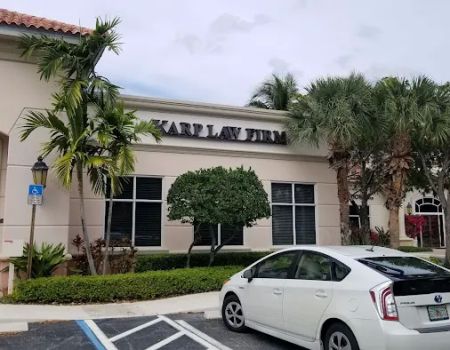Contact Info
- Location 3188 PGA Blvd, West Palm Beach, FL 33410, USA
- Phone +1 561-624-6630
- Website https://sa15.org/
Reviews
Contact Us
About State Attorney
Within the category of Nearby Lawyers, it is important to understand the distinct role of the State Attorney. Unlike private attorneys who represent individual clients, the State Attorney, also known as the public prosecutor or district attorney in some jurisdictions, is a government official who represents the public interest in criminal matters. Their office is a vital component of the local criminal justice system. The environment of a State Attorney's office typically includes government buildings or dedicated legal facilities. These offices house a team of Assistant State Attorneys, investigators, paralegals, and administrative staff who work collaboratively to uphold the law. The atmosphere is generally professional and focused on the administration of justice. While not directly providing services for hire to individual members of the public in the same way a private lawyer does, the State Attorney's office plays a critical role in ensuring public safety and holding individuals accountable for criminal offenses within the local community.
The primary service provided by the State Attorney's office is the prosecution of criminal cases. This involves a multifaceted process that begins with the review of law enforcement reports to determine if sufficient evidence exists to file criminal charges. If charges are filed, Assistant State Attorneys represent the state in court proceedings, which can include arraignments, plea negotiations, pre-trial motions, and trials. They are responsible for presenting evidence, examining witnesses, and arguing for the conviction of individuals accused of crimes. The State Attorney's office handles a wide spectrum of criminal offenses, ranging from minor misdemeanors to serious felonies, depending on the jurisdiction and the structure of the local legal system. Their services extend to victims of crime as well, often involving victim advocacy and support to ensure their rights are protected throughout the legal process. This may include providing information about the case, offering support services, and seeking restitution on behalf of the victim.
Several key features define the function of the State Attorney's office. Objectivity and impartiality are paramount; while their role is to prosecute those accused of crimes, they are also ethically bound to seek justice, which includes ensuring that the rights of the accused are respected and that only cases with sufficient evidence proceed. Another crucial feature is their role in law enforcement accountability. The State Attorney's office often works closely with local police departments and other investigative agencies, providing legal guidance during investigations and sometimes reviewing allegations of misconduct. Furthermore, community safety is a central focus. Through the vigorous prosecution of criminal offenses, the State Attorney's office aims to deter crime and maintain a safe environment for the local population. They also play a role in shaping local criminal justice policies and initiatives. The office is typically organized into various divisions specializing in different types of crimes, such as violent crimes, property crimes, drug offenses, and juvenile justice, allowing for focused expertise in these areas.
In terms of promotional information in the traditional sense, the State Attorney's office does not typically engage in marketing or promotional campaigns aimed at attracting clients, as their services are mandated by law and serve the public as a whole. However, they often engage in public outreach and community engagement initiatives. These may include educational programs on crime prevention, participation in community forums to discuss public safety issues, and transparency efforts to inform the public about the work of their office. For example, they might issue press releases on significant cases or initiatives, publish annual reports detailing their activities and outcomes, or participate in local events to build trust and understanding between the community and the criminal justice system. These efforts serve to inform the public about their role and how they contribute to the safety and well-being of the community. Information about these initiatives can often be found on the official website of the State Attorney's office for the relevant local jurisdiction.
It is important for local users to understand that while the State Attorney's office is a crucial part of the legal landscape, they do not provide legal representation to individuals facing criminal charges or those involved in civil disputes. If you require legal representation as a defendant in a criminal case, you will need to seek the services of a private criminal defense attorney or, if you cannot afford one, request a public defender who is appointed by the court to represent indigent individuals. Similarly, for civil legal matters, you would need to hire a private attorney specializing in the relevant area of law. The State Attorney's office operates on behalf of the government and the public interest in criminal proceedings.
In summary, the State Attorney's office is a vital component of the Nearby Lawyers category, representing the public in criminal matters within the local jurisdiction. Their environment is typically a government office setting, and their primary service is the prosecution of criminal offenses, along with support for victims of crime. Key features include their commitment to objectivity, their role in law enforcement accountability, and their focus on community safety. While they do not offer traditional promotions, they often engage in public outreach to inform and engage with the community they serve. Understanding the role of the State Attorney is essential for local users navigating the legal system, even though their services are distinct from those of private practicing attorneys.
State Attorney Location
3188 PGA Blvd, West Palm Beach, FL 33410, USA
More Nearby Lawyers Near Me

3001 PGA Blvd #305, Palm Beach Gardens, FL 33410, USA

Seacoast Banking Centre, 3001 PGA Blvd #104, Palm Beach Gardens, FL 33410, USA

2979 PGA Blvd #201, Palm Beach Gardens, FL 33410, USA

2925 PGA Blvd STE 204, Palm Beach Gardens, FL 33410, USA

3300 PGA Blvd #430, Palm Beach Gardens, FL 33410, USA

3300 PGA Blvd #600, Palm Beach Gardens, FL 33410, USA

2875 PGA Blvd STE 100, Palm Beach Gardens, FL 33410, USA

2701 PGA Blvd, Palm Beach Gardens, FL 33410, USA

3601 PGA Blvd #200, Palm Beach Gardens, FL 33410, USA

3601 PGA Blvd Suite 300, Palm Beach Gardens, FL 33410, USA

3507 Kyoto Gardens Dr STE 310, Palm Beach Gardens, FL 33410, USA

3801 PGA Blvd Suite 600, Palm Beach Gardens, FL 33410, USA
